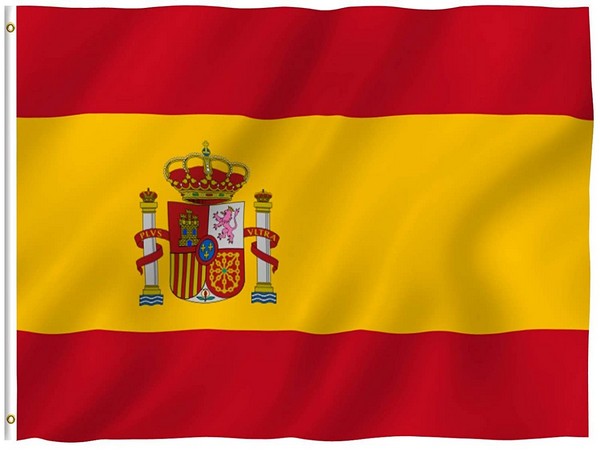ANALYSIS-Spain's socialists roll dice on Catalan amnesty in bid for power
If an amnesty were agreed, his return, free of all charges and able to run for office again, could be difficult for Sanchez who once vowed to bring Puigdemont to justice. 'THE RIGHT TO VOTE' Sources said both sides were still confident of securing an agreement, despite all the obstacles. Senior socialist official Alicia Romero said her party had already shown it could win through after voters decided not to punish it over a deal that pardoned nine jailed Catalonian leaders in 2021.

- Country:
- Spain
Spain's socialists are poised to take a major political gamble as they consider offering a unpopular mass pardon to hundreds of Catalan separatists in a bid to persuade the region's parties to back them in government. Sources close to the negotiations with those parties told Reuters the socialists are confident they will be able to secure a deal to keep themselves in power without simultaneously losing the support of swathes of the wider electorate.
But, as the talks got under way in earnest, Catalonia's regional parties raised the stakes still further by suggesting their support now depends on the even-move explosive issue of another independence referendum. If they reach a deal, Spain faces the prospect of four years of a minority government tied to the pledges it made to separatists over the divisive issue of self-determination and dependent on their support to pass each piece of legislation.
If they don't, the country will go to another election in January in which voters could hand a centre and far-right coalition the absolute majority it narrowly missed out on in the last vote in July. The scale of the challenge facing the socialists came into focus after conservative leader Alberto Nunez Feijoo failed in his bid to form a government on Friday.
As the socialists took their turn, attention shifted to the size of the amnesty demanded by Catalonia's Esquerra Republicana de Catalunya (ERC) and Junts parties - potentially covering more than 1,400 people involved in the independence bid that came to a head in 2017, Catalan organization Omnium estimates. That would be the largest in Spain since the 1977 blanket amnesty for crimes committed during the Francisco Franco dictatorship, and the first amnesty law approved in the EU since 1991, according to Spain's CSIC research council.
CONCESSIONS, HARD PILLS There would be celebrations in Catalonia, but everything from disgruntlement to outright anger in some other parts of the country. Around 70% of respondents - 59% of them socialist supporters – said they were against the idea of an amnesty in a poll in mid-September.
The same poll showed 69% of respondents believe separatist leaders committed a crime in 2017. Some scholars argue an amnesty could not be squared with the country's constitution which does not allow a general pardon. The PP has accused socialist leader and acting prime minister Pedro Sanchez of seeking power at any cost by jeopardizing the rule of law.
Sanchez has said he will act within the law, but declined to give further details. Other sources told Reuters that socialist leaders were confident they would be able to win over most voters by getting concessions back from the Catalonian parties - including a promise not to repeat 2017's seismic unilateral independence referendum.
Socialists are also pushing for those exonerated to include police officers accused of excessive violence after being sent by Madrid to quash the independence vote, the sources said. There is also horse-trading to be done on the precise number of people who would be pardoned, and hard pills to swallow on both sides.
The amnesty's most high-profile beneficiary would be Junts' founder Carles Puigdemont, who led Catalonia in 2017 and is fighting extradition to Spain from Belgium, where he fled following the short-lived independence declaration. If an amnesty were agreed, his return, free of all charges and able to run for office again, could be difficult for Sanchez who once vowed to bring Puigdemont to justice.
'THE RIGHT TO VOTE' Sources said both sides were still confident of securing an agreement, despite all the obstacles.
Senior socialist official Alicia Romero said her party had already shown it could win through after voters decided not to punish it over a deal that pardoned nine jailed Catalonian leaders in 2021. In July's inconclusive election, the socialists actually gained votes across Spain and won by a landslide in Catalonia.
But the socialists' hopes of sidestepping the risk of another referendum by agreeing an amnesty hit an obstacle on Friday when the two main separatists parties passed a joint resolution in the regional assembly saying the upcoming government would have to create the "conditions" to hold an independence plebiscite in exchange for their support. "We cannot renounce the right to vote, it would be like renouncing democracy," Esquerra's chairman Oriol Junqueras, who was Catalonia's deputy head in 2017 and was pardoned in 2021, told Reuters before that vote.
He said he believed an amnesty would happen, based on his contacts with the socialists, and such a move would remedy an injustice committed by Spain, referring to the charges and convictions. But the amnesty would only be the start of what the parties wanted, Junqueras said.
"The amnesty does not end the political conflict, it sets more balanced conditions to resolve it."
(This story has not been edited by Devdiscourse staff and is auto-generated from a syndicated feed.)










